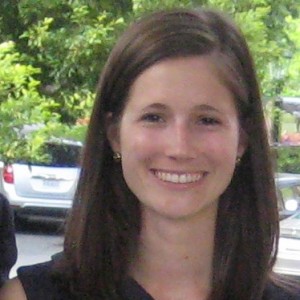
Wondering if grad school is right for you? This week, we’re putting together a guide to the grad school experience, brought to you by those who know it best: current students and recent alums. Check in all week for an inside look at med school, law school, PhD programs, and more!
If you were a Poli Sci major in undergrad, love debating policy issues with your friends, or even just watch Law & Order as a guilty pleasure, you’ve probably contemplated law school at some point. We sat down with three students and recent grads and got their take on what the experience is really like.
School: Harvard
Age: 26
Background Before Law School: Went straight from undergrad to law school
Why did you choose to go to law school?
I’ve always wanted to be a lawyer for as long as I can remember (my parents say I argue too much). Throughout high school and undergrad, I took on a variety of internships and other programs relating to legal work and enjoyed all of them. So, instead of searching for a job senior year, I decided to go straight to law school.
What tips do you have for someone applying?
First and foremost—enjoy the law! Law school is three years of intensive reading and logical reasoning, and given the time and money that you will spend in going to law school, it is very important, even going in, that you can enjoy the work of analyzing cases and thinking critically about the law.
As a cautionary tale, I’ve known people that have gone to law school because they wanted a higher-paying attorney job, or wanted to ride out the job market for a couple of years, or because they thought it sounded “interesting.” Many of these people ultimately found the study of the law tedious and boring, and some of them ended up not finishing their degree. The people that get the most out of law school are the ones who, going in, actually enjoy the day-to-day work of going through cases and understanding just what the law “means.”
What’s been your favorite part of the experience so far?
My favorite parts of law school have been the student clinics. As a practicing attorney, I’ve come to realize that so much of the classroom experience at law school has only limited use in the real world (although, that’s a different story if your goal is ultimately to go into academia). Instead, the most educational and rewarding experiences I’ve had in law school have been the chances where I actually got to see what the practice of law was like first hand. If anything, I wished I had spent more time with clinics than classes at law school, which I believe would have better prepared me to be an attorney.
In my second year, I worked with a lobbying non-profit, and got to accompany the attorney to the State House and work on drafting potential legislation. Even more interesting, in my third year, I worked in the Boston District Attorney’s Office actually prosecuting cases. I was assigned a case load of my own, and had to present the State’s case for each of those cases in front of the judge every week. Near the end of this clinic, I actually even handled a bench trial of my own, which was an incredibly rewarding experience.
What’s been the biggest surprise?
That law school and undergrad are completely different animals. One of the things that intimidated me early on was the number of students that had spent time outside of school doing things in the “real world.” Some of my classmates had spent time in the military; others taught in inner-city schools; still others had gone through the world of finance and consulting, and all of them appeared so much more ready to tackle law school than I was.
For many people going from undergraduate directly to law school, this was definitely a surprise and an adjustment. Students who had spent time working, or who had families, for example, treated law school like a 9-to-5 job: Come onto campus for classes, study, and finish homework in the libraries, and then go home at night and not worry about law until the next day. That was just a very different approach to school than I had been used to, and one that I had to adjust to, especially when it came to working with people in study groups to prepare for finals.
What are you doing post-graduation?
I graduated in May 2011, and am now a second-year attorney at a firm, Akin Gump, in New York. I hope to work at the firm for a couple of years, and then transition over to work with the U.S. Attorneys’ office to gain more practice in being a litigator (in firms, younger attorneys have less of an opportunity to go into court and present cases).
School: University of Virginia School of Law
Age: 26
Background Before Law School: Worked for six months as a research assistant at the Yale Child Study Center studying autism
Activities/Extracurriculars: Editor of a law journal
Why did you choose to go to law school?
A law degree suited my personality and interests—I’m very detail-oriented and enjoy reading, writing, and analyzing complex issues. I also knew that a law degree would enable me to work in practically any type of organization I wanted, ranging from the private sector to a nonprofit to the government.
Why did you choose UVA?
UVA is known not only for its academic excellence, but also for its emphasis on a high quality of life—it encourages students to collaborate, not compete by sponsoring things like softball leagues and bar nights. I had heard that people who went to UVA Law actually (gasp!) liked law school.
What tips do you have for someone applying to law school?
Look at the school's job placement statistics. In this economy, you don't want to pay for three years of law school unless you have a decent chance of getting a job once you graduate.
What does your typical week look like?
Monday through Thursday, I have two to three classes a day. Friday, I typically only have one. In between classes, I stay at the library and read. If I'm very efficient with my work during the day, I'm usually done studying by 6 PM every night! On Saturday, I typically read and outline my notes. I hang out with friends on Friday and Saturday nights, and Sunday is my day off.
What have been your favorite classes?
The Family Resource Clinic has been my favorite class. As a student attorney in the class, I represented and advised clients on a range of public benefits issues. I helped one family obtain monthly adoption assistance payments for their special-needs son.
What are your post-grad plans?
I entered law school convinced that I would begin my career in public service law. Since then, I've decided to begin my career at a law firm in order to receive the best legal training. I will begin my career as an associate at Groom Law Group, an employee benefits law firm in Washington, D.C. After working at a law firm for a few years, I hope to transition to the public sector.
Misty Wright, 3L
School: Harvard
Age: 26
Background Before Law School: For a year and a half, I worked in NYC as a paralegal at a nonprofit by day and taught hip-hop dance classes by night. Then, I worked on the Jack Conway vs. Rand Paul Senate campaign in Kentucky.
Activities/Extracurriculars: Government Lawyer (Prosecutor) Clinic, International Human Rights Clinic, American Constitution Society, Women's Law Association, Journal of Law and Gender, and some other fun things (such as choreographing for the law school play, Parody).
Why did you choose to go to law school?
I originally decided to go to law school to enable me to advocate for global and domestic women's rights more effectively. Without a thorough understanding of the law, it's difficult to understand the most effective way to change it, or the complementary policy.
What tips do you have for someone applying?
Get work experience first. It gives you invaluable perspective and cleans the slate for you to learn a new way of thinking, reading, and writing.
What’s been your favorite part of the experience so far?
My favorite part of the experience has, by far, been the practical training—the workshops and clinics that HLS offers. During my second year, I worked in the International Human Rights Clinic on a project investigating gold mining's environmental and health effects in specific areas of South Africa. As part of this project, I got to plan and execute spend a several-week-long fact finding mission in South Africa.
During my second year, I worked at the U.S. Attorney's Office in Boston in the Organized Crime Strike Force, working closely with an AUSA and learning what federal prosecution actually looks like. Now, during my third year, I just finished the Trial Advocacy Workshop, an all-day every-day intensive trial preparation program.
What’s been the most challenging part?
There is simply not enough time in the day to complete all the work assigned. I'll use 1L year as a reference. It looked like about 4-5 hours of class per day, 2+ hours of meetings, and about 7+ hours of work. You have to find a way to triage while still maintaining the non-law-school-related aspects of your life that are important to you.
What have been your favorite classes?
Professors make all the difference. I've loved every class with a phenomenal professor—torts, civil procedure, sex equality, and constitutional law were some of my favorites.
What are your plans after law school?
I will clerk full time for Judge Heyman of the Western District of Kentucky, Chairman of the Judicial Panel on Multidistrict Litigation for one year. Eventually, I would like to transition into prosecution.
What do you wish you had known about law school before coming in?
I wish I had taken time to think more about the direction I was going to go, so I could have specialized earlier.

